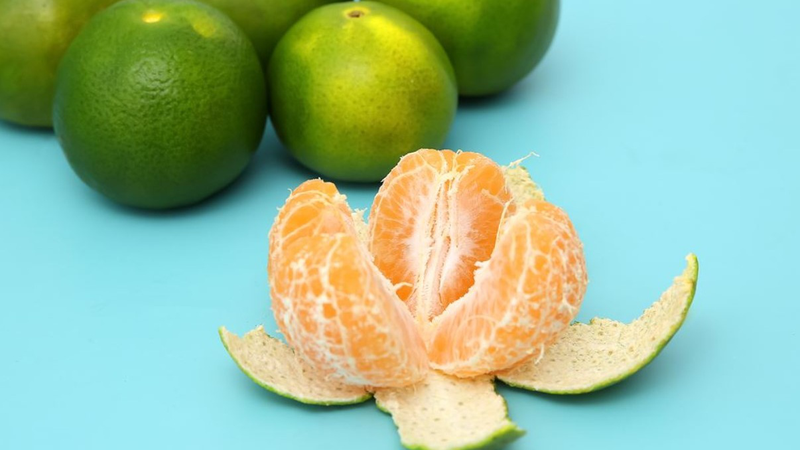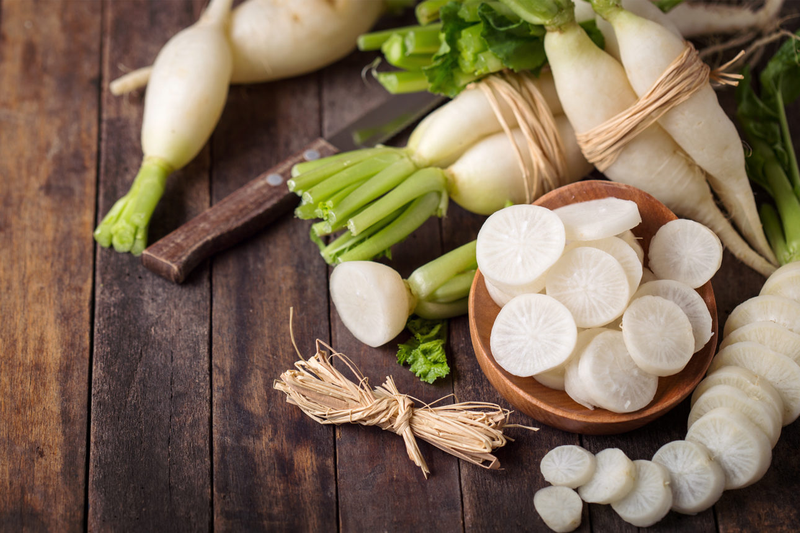Tangerine is a nutritious fruit with many health benefits. With its sweet taste and characteristic aroma, tangerine has become a favorite fruit of many people. Although you often eat tangerine, do you know all the uses of this fruit? If not, follow our article today.
In folk medicine, tangerine in general and tangerine peel in particular are valuable medicinal herbs with very effective healing effects. To better understand the uses and remedies from tangerine, you should not miss the following shares.
Nutritional value of tangerines
Tangerines are a type of fruit that is considered a “treasure” of plant-based nutrients that are beneficial to health, of which the most prominent are vitamins and minerals, especially vitamin C. The nutritional content of tangerines is very high, specifically, if comparing 100g of tangerines with 100g of pears, it can be seen that:
- The protein content of tangerines is 9 times higher than that of pears;
- The calcium content of tangerines is 5 times higher than that of pears;
- The phosphorus content of tangerines is 5.5 times higher than that of pears;
- The vitamin B1 content of tangerines is 8 times higher than that of pears;
- The vitamin B2 content of tangerines is 3 times higher than that of pears;
- The vitamin C content of tangerines is 10 times higher than that of pears.

Tangerines have higher vitamin and mineral content than many other fruits.
In addition to the above nutrients, tangerines also contain many antioxidants that are good for health, help strengthen the immune system and fight against the development of cancer. According to some studies, the habit of eating tangerines regularly helps increase the body’s ability to protect against dangerous radiation from computers.
In addition, the nutritional ingredients rich in vitamin A and beta-carotene of tangerines also contribute to increasing the ability to produce resistance, protecting the body from the harmful effects of radiation. Some plant compounds found in tangerines have been shown to have the ability to fight against the breakdown of uric acid in the blood, thereby reducing the risk of kidney stones, urinary stones, etc. Antioxidants and vitamins abundant in tangerines also help balance the body’s metabolic functions, which is beneficial for the elderly and people at risk of cardiovascular disease.
Uses of tangerines
Thanks to their rich nutritional content, tangerines bring great health benefits, typically:
Supporting the treatment of flu
When suffering from the flu, the body often experiences fatigue, weakness, high fever, severe cough, and dehydration. Meanwhile, tangerines are a rich source of water, electrolytes, vitamins, and minerals for the body, providing great support in the recovery process after the flu. In addition, tangerines also contain many antioxidants and fiber that are beneficial for the digestive system, improve immunity, and stimulate the patient to eat more deliciously.
Preventing obesity
Tangerines in general and tangerines in particular have a high water and fiber content, so when eaten, they will create a feeling of fullness quickly and for a longer time, which is very good for people who are in the process of losing weight because they can limit cravings. With a lot of water, little sugar, and few calories, tangerines should be on your weight loss menu.

Eating tangerines makes you feel full for a long time and helps you lose weight.
Reduce the risk of diabetes
Research has shown that tangerines can provide the compound nobiletin – a substance that can stimulate the fat burning process to occur faster, while preventing the production of stored fat in the body. This effect of tangerines helps prevent the risk of type 2 diabetes and diseases related to high blood sugar.
Stroke prevention
A study on a group of more than 7,000 people showed that people who regularly eat tangerines have a 19% lower rate of stroke due to blood clots than those who do not eat tangerines. The abundant potassium content in tangerines has the effect of preventing blood clots, thereby reducing the risk of stroke.
Uses of tangerine peel and seeds
Tangerine peel and seeds are not only delicious and nutritious, but the peel and seeds of tangerines also have many uses, especially the ability to support the treatment of many diseases, specifically:
- Treat baldness and dandruff: If you have dandruff or hair loss causing baldness, take the peel of a tangerine, crush it, put it in boiling water, cover it and let it steep for 30 minutes. Then, strain this water to apply evenly to the scalp and hair roots, incubate for 30 minutes and wash it off with shampoo as usual.
- Treat headaches: Do you often have headaches that affect the quality of your life and work? Then try boiling tangerine peel with water and steaming your face to feel comfortable and quickly reduce pain.
- Treat mastitis: Mastitis is a common condition in breastfeeding mothers. To treat this problem, take about 30g of fresh tangerine peel and 6g of licorice, mix them together, steep in boiling water for about 30 minutes, then filter the water and drink it every day.

Washing your hair with water boiled from tangerine peel and sugar helps reduce dandruff and stimulate hair growth.
Notes when using kumquats
Although kumquats are natural and benign foods, to take full advantage of the benefits of this fruit, you should note the following:
- Kumquats are rich in acid and vitamin C, vitamin K, so if you are taking medication containing sulfa spironolactone or potassium supplements, you should not eat kumquats.
- People who have just had gastrointestinal surgery, when the surgical wound has not healed, should not eat kumquats because this fruit is highly acidic, can easily cause bleeding and slow down the healing process of the wound.
- Kumquat peel can cure coughs and loosen phlegm, but the flesh of the kumquat has the opposite effect because it contains a lot of cellulite that stimulates heat generation and increases phlegm in the respiratory tract.
- Do not eat kumquats with radishes because it can easily cause side effects that affect thyroid health.
- If you use tangerine peel to brew tea, you should choose organic tangerines that do not contain chemicals, pesticides, etc.
- Do not eat tangerines before meals or on an empty stomach because tangerines contain a lot of acid that is not good for the stomach.

You should not eat tangerines and radishes at the same time because it has a negative effect on the thyroid gland.
In general, tangerines are a fruit in which every part, from the peel, flesh and seeds, has certain health benefits. Fresh tangerines can be stored for quite a long time at room temperature, but if peeled, you should store them in the refrigerator and use them up within 24 hours to avoid cross-contamination of bacteria from other foods.





